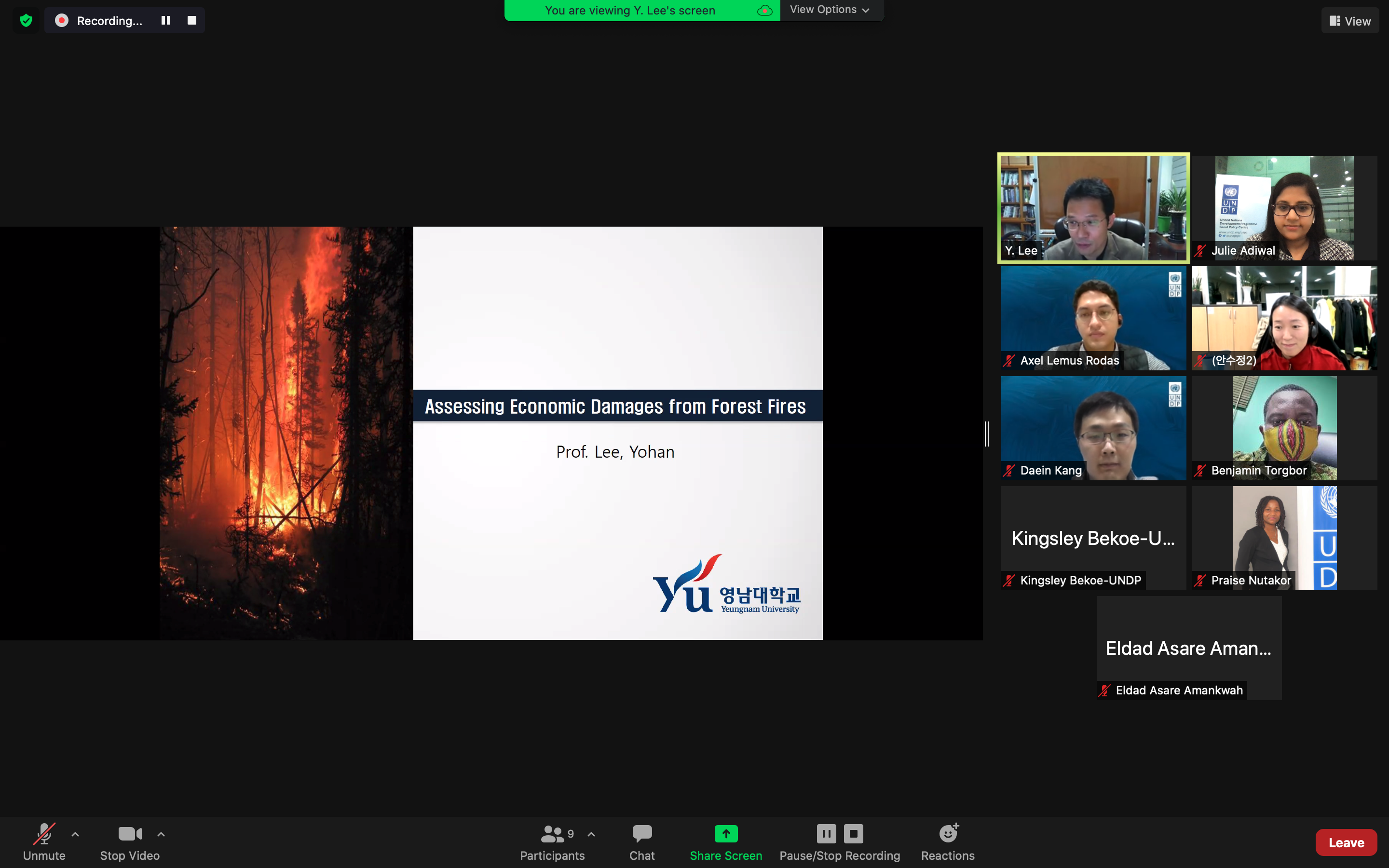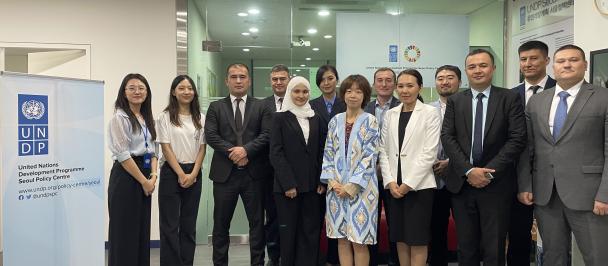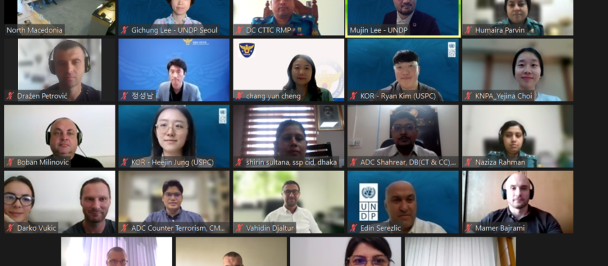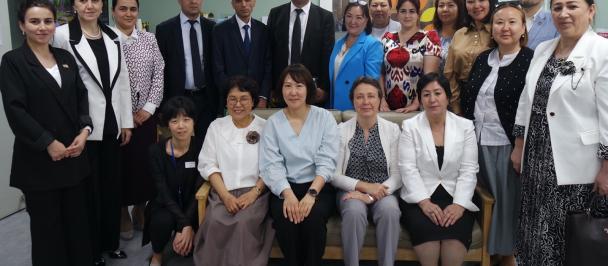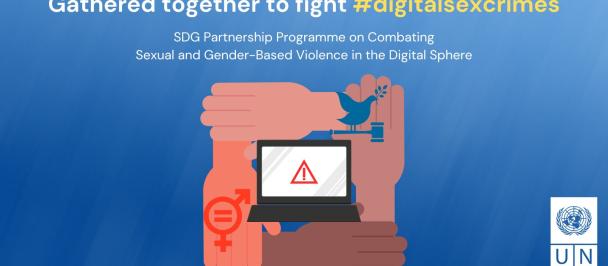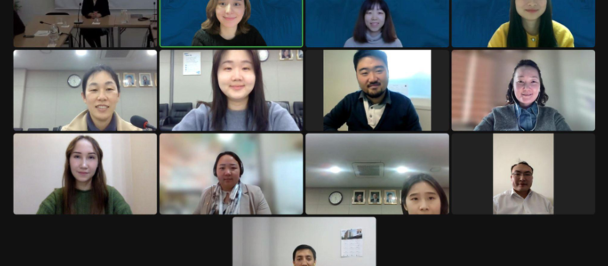Forests in Ghana face serious challenges, including illegal logging, over-exploitation and widespread forest fires - risks that are further compounded by climate change. Wildfires threaten health outcomes, destroy critical infrastructure and deplete forest resources that disproportionately impact rural livelihoods. Effective forest fire management is therefore critical in Ghana in securing climate-resilient, sustainable and inclusive development outcomes.
As a model for sustainable forestry practices, lessons from the Republic of Korea extend beyond achieving forest rehabilitation. Korea has a comprehensive approach to forest fire management, including advanced monitoring techniques, strong firefighting capabilities and informative regeneration practices. These policies hold valuable lessons for countries facing a high risk of wildfires and other forestry sector challenges.
On November 10, 2021, the UNDP Seoul Policy Centre (USPC), with support from Korea's National Institute of Forest Science (NIFoS), organized a virtual training on forest fire management as part of its SDG Partnership on Sustainable Forestry with Ghana. Based on knowledge gaps highlighted by the Forestry Commission of Ghana, three forestry experts from Korea gave comprehensive presentations on forest fire prevention, response and management techniques and systems employed in Korea that could be contextualized in the Ghanaian context.
Critical factors for success identified through the technical discussions include:
- Prevention, as larger fires equate to exponentially growing damages and economic costs
- Importance of institutional coordination and cooperation for effective management
- Technology as a tool within a holistic approach sensitive to local conditions and capacities
Ghana will utilize the lessons from this virtual event, as well as from a previous study visit to Korea, to develop local knowledge products and update firefighting training manuals to enhance fire management throughout Ghana. The Forestry Commission and UNDP Ghana will also utilize these manuals and knowledge products to conduct onsite training for firefighters and fire volunteers throughout the country. These inputs from Korean partners are especially timely as the dry season begins in Ghana and forest fire risk increases at the end of November. Furthermore, in the context of the recent COP26 climate summit, the virtual training also compliments Ghana's commitment to halt and reverse deforestation by 2030.

 Locations
Locations